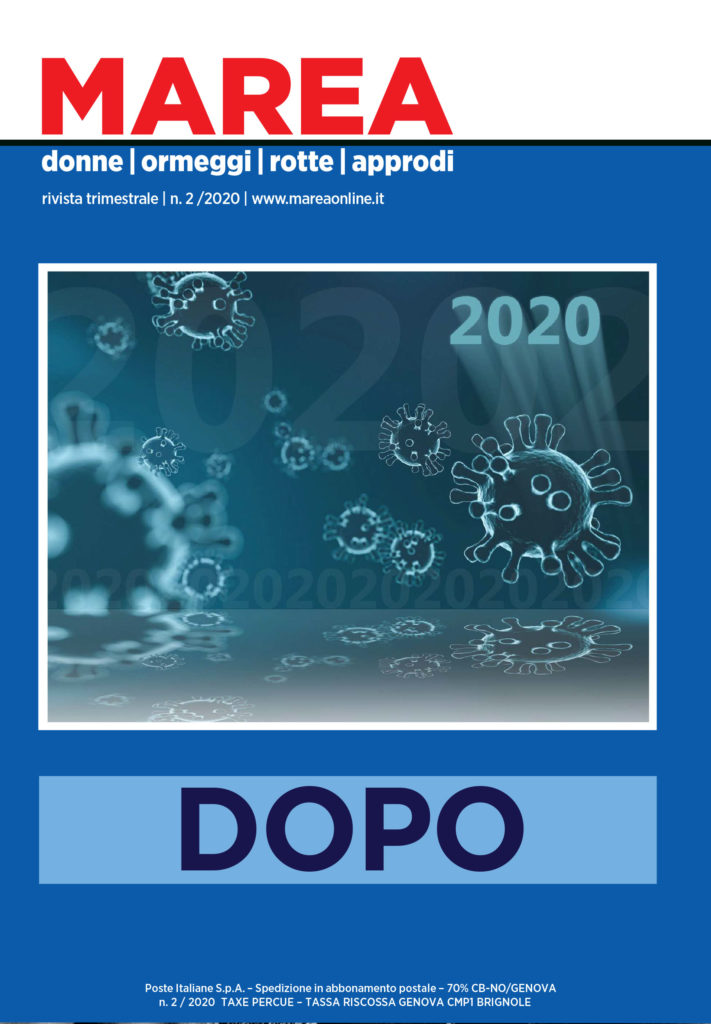This post is also available in: Français (French)
"I cannot get used to the increasingly frequent use of the term “war” in the context of the fight against Covid-19. “We are at war”, “We must win this war.” Everyone transformed into warriors, or rather soldiers, weapons in hand to defeat the enemy. The emergency does not correspond to the war. I think anyone over 80, having experienced it personally, cannot but oppose the use of this word, a word that can instill in the younger ones a desire to fight, reinforced by video games, and ignite a call to arms, urged by adults at times, even though we are talking about a scenario that is unrelated to war but rather one dominated by science and technology.”
These words by Italian scholar and writer Antonia Sani, president of Women’s International League for Peace and Freedom, WILPF-Italia, are just one of the many reflections collected and published in a special issue dedicated to the coronavirus pandemic that has been with us for over a year and a half now, by the quarterly magazine that I have been publishing since 1994, Marea, an heir to the many magazines of the ‘70s that have since disappeared.

Activists, scholars and women who work in various fields have sent us long or short reflections, following a video in which we invited them to write to us. We have fixed many of their contributions and published them on our pages as we had intuited that it was important not only to share emotions of fear and dismay of the first moments of awareness of how our world had changed in a moment; but it also seemed important to us to give the floor to women so that they could share how they imagined the future once this storm will have passed.
Would we have learned to reposition our priorities, to avoid the fatal mistakes that led us to this pandemic? Would we be able to increase our feminist impact on the societies we live in?
Teachers are undoubtedly among the many categories of women exposed to the radical changes that the pandemic has imposed. One of them, Valentina Romano, writes to classrooms she has only seen on screen for distance learning since February 2020:
"We found ourselves unable to go to school, each working from their homes, in pajamas at ten in the morning, as if it were a Sunday but it was Monday, no Wednesday or maybe Thursday, because I feel lost without school, and not only lost within a calendar. We found that our long-awaited trip for students in their last school year was cancelled. We would have seen Auschwitz. We can't go out, guys. Infections are rising and hospitals are collapsing. Everyone must do their part and stay at home, demonstrating responsibility and a civic sense, demonstrating that we love ourselves and others and that now more than ever it is cool to obey the rules, and not respecting them or underestimating the emergency would only be for idiots. This is what being conscious citizens requires, not hours of lessons on the constitution or legality but proving you are as such, showing that this goal is the most important one the school has achieved. Don't be idiots, not going out is the only way we can get back to normal as soon as possible.
But there is also another reason that pushes me to write to you.In spite of the coronavirus I will continue undeterred and move my desk towards you, even if I am not at school and even if it is hard as hell, because now that we are really and forcibly distant this desk has become much heavier.
The only strength I have to not lose you are poems and wonderful pages of the 20th century to read together, and to read now, because there won’t be time later. Because this virus will pass sooner or later and you will start studying engineering, mathematics, economics and so on, and Dante, Pirandello, Montale and Saba will be the stuff of literati, they won’t be of any use to you anymore. But right now they are of great use for us. But you have to give me a hand and collaborate. This word, as you know, comes from Latin, and means "to toil together"(And in any case, I will ask you about the etymology of the words in the exams, I promise you)."

An account we also received and that was indispensable is that of another category of women at the forefront, the doctors, like Anna Bellini who postponed her retirement so that she can be useful during the first and the most acute phase of the pandemic, the onset of the virus:
"Today time is immobile, this is a time of uncertainty and fear. A deadly air of tragedy hangs around ready to strike anyone, facilitated by the return of winter that encloses us even more, if ever this was possible. If until a fortnight ago people were desperately trying to deny all this with reckless behaviour, and the district playground was full of kids in revelry for the unexpected holiday like the courtyard of the clinic was full of children, today it is no longer possible to pretend.
There is an hour in the evening when ambulance sirens are the soundtrack to a silence that otherwise is not much interrupted. I'm halfway between the inside and the outside. I am inside the clinic, close, only emotionally, to the other colleagues and staff; some of us absent in turns because they are sick, fortunately not seriously. And I am outside, at my house, where I try to reassure everyone that needs to be reassured. I understand the situation from the frequency of phone calls. The calls that were uninterrupted a few days ago are starting to decrease. Maybe the pandemic slows down, maybe people have figured out what to do and can handle the situation, maybe they just lost the urge to call. If they call for stupid things, I can't control myself so I get pissed off like I do for improper access to the ER, but perhaps the stupid things hide a creeping anxiety that has no possibility of being verbalized otherwise. I keep telling myself that I am in the local medicine field and not in resuscitation, mostly to convince me that the heroes are the others, there are those who are worse off among colleagues. Then the rising number of general practitioners dying creeps in to underline that we are at the forefront of the territory: we the doctors who act as a filter to avoid overcrowding, to contain panic, to try to understand… My clients are mainly people of color, coming from all over the world and mostly young; used to the thousands of vicissitudes of life that have brought them this far, they have a meek, almost resigned attitude towards this last ordeal. Rather than visits they ask more for reassurances and accept them willingly. It is different for elderly patients who want to be visited at home, but for them the risk of both transmitting the infection and being infected is high.”
“Let's not condemn ourselves to silence and urgency”

Daniela Cassini, a feminist with a long experience in local institutions in a northern region of Italy, comments on the collective historical time we are going through:
“The pandemic broke into our lives and subverted them. Each of us dealt with this moment in her own way, with our movements and thoughts fluctuating between the uncertainty for today and the questions about tomorrow. If we have to stay at home, it is worth preparing for the time that we do not yet know, by assuming responsibility. The paradigm of civilization that we know is disappearing, a new time is coming. This is a time in between, says Elif Shafak, in which the previous order has entered a crisis mode and the new order has not yet been born. In a public appeal, Annie Ernaux urges us to use this propitious time to put values back on the right scale, this is the time to desire a new world.
What new normal do we plan to return to? Meanwhile, the issue of violence against women has had no respite. On the contrary, in Shafak's Turkey, domestic violence against women has increased by 40% since the beginning of the emergency and the Italian network D.i.Re (anti-violence centers) has reported an increase of over 70% in requests for support in cases of physical and emotional violence.
This period is distinguishing itself by also turning into a social pandemic with economic and political consequences: the number of people who have asked for help has increased by 50%; there are already very high social costs for workers, sharpened inequalities and a spike in injustices. Distancing and tracking seem to become a real social model of controlled life. Crises - we know - are opportunities, but they can also lead to regressions and closure, also from a democratic point of view, with neo-authoritarian temptations.
Angela Davis and Naomi Klein talk about the deep crisis of the capitalist system, focusing on the need to strengthen social movements and to start a global debate involving other experiences from other parts of the world as a response (like what is happening in countries subject to repressive regimes), increasing the strength of collective action through an anti-racist and feminist vision, finding the voice to question systems of power, political inefficiencies and incompetence. The common thrust should lead to the recovery of humanity and the reconstruction of international solidarity and culture. Let's not condemn ourselves to silence and urgency.”
To read the original version of the article in Italian :































